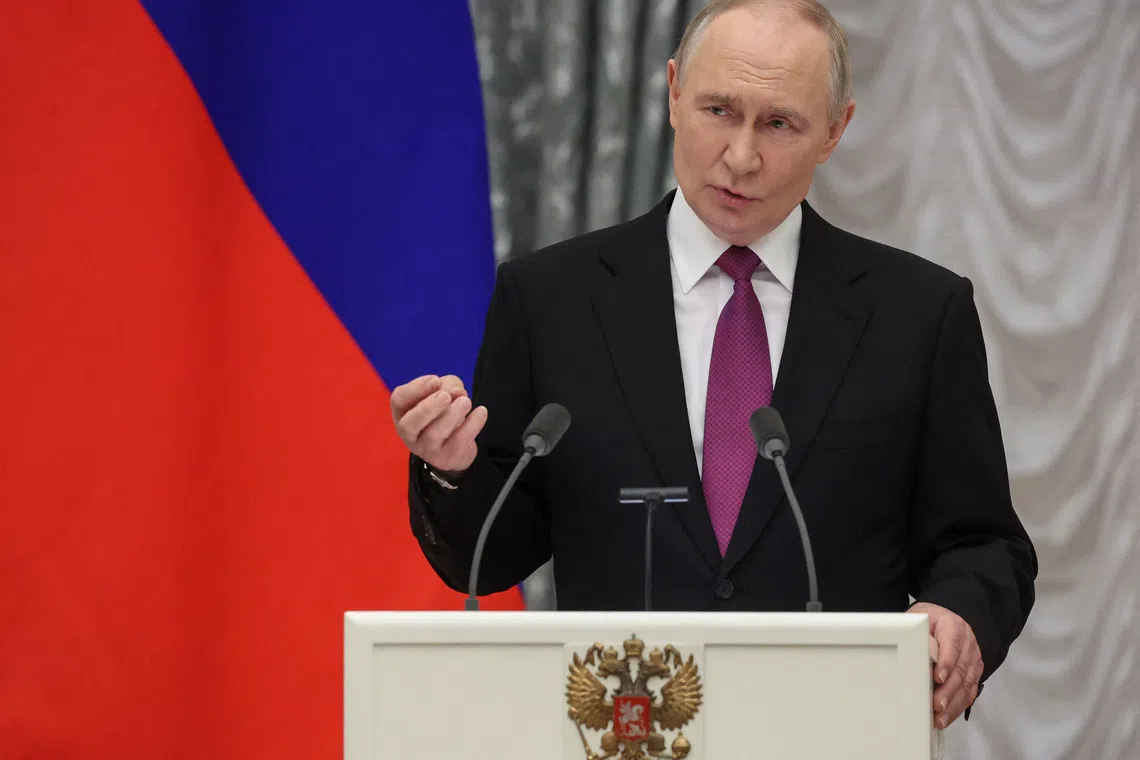Putin praises capabilities, prospects of new Russian weapons
Sign up now: Get ST's newsletters delivered to your inbox

Russian President Vladimir Putin extolled the qualities of the Burevestnik cruise missile and Poseidon super torpedo at a ceremony.
PHOTO: REUTERS
Follow topic:
MOSCOW - President Vladimir Putin on Nov 4 praised some of Russia’s newest weapons, describing them as faster and more effective, capable of ensuring security and strategic parity and even of use in rare metals extraction and lunar missions.
Mr Putin extolled the qualities of the Burevestnik cruise missile and Poseidon super torpedo at a ceremony honouring the experts who helped design and build the weapons.
“The result you have achieved has, with no exaggeration, historic significance for our people for ensuring security and strategic parity for decades to come and, we can boldly say, for the entire 21st century,” Mr Putin said in comments reported by Russian news agencies.
Last week, Mr Putin said Russia had successfully tested the nuclear-capable Burevestnik
The chief of staff of Russia’s armed forces said it had travelled 14,000km.
On Nov 4, Mr Putin praised the missile’s speed - more than three times the speed of sound - and its propulsion system of small nuclear reactors which can be brought into action much more quickly than standard reactors - within seconds.
He said a Nato warship had been in the vicinity when the missile was being tested.
The Kremlin leader also announced last week the successful test of the Poseidon
At the Nov 4 ceremony, Mr Putin said the torpedo’s speed far exceeded that of any surface vessel.
Mr Putin said the small-scale nuclear technologies used in both the Burevestnik and the Poseidon were particularly useful for work in the Arctic and for space travel and, eventually, for building a station on the moon.
They were equally useful in creating energy sources for extracting rare metals, he said.
Mr Putin also said Russia was proceeding with mass production of its Oreshnik missile, which Russia said was first used to attack Ukraine in November 2024. REUTERS

